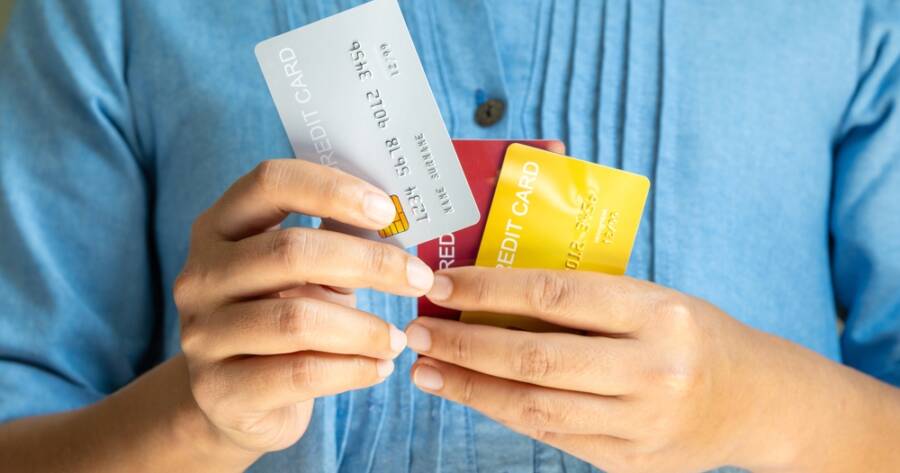Opening your first credit card can be a smart financial step—but it’s also a decision that comes with long-term responsibility. Credit cards can help you build credit, earn rewards, and offer protection for purchases, but they can also lead to debt if not used wisely. Whether you’re new to credit or just exploring your options, understanding the basics before applying can help you make a smart, informed choice—and avoid common pitfalls.
Here’s what to know before you apply for a credit card for the first time.
Understand How Credit Cards Work
A credit card lets you borrow money up to a set limit and pay it back over time. If you pay your balance in full every month, you won’t owe any interest. But if you carry a balance, interest charges will apply—and they can add up quickly.
Each card comes with a credit limit, which is the maximum amount you’re allowed to charge. You’ll also receive a monthly statement showing what you spent, your minimum payment due, and the due date. Paying your bill on time and in full helps you avoid interest and build a strong credit history.
Know the Common Fees and Interest Rates
Not all credit cards are free to use. It’s important to read the fine print and understand the potential costs involved.
-
Annual fee: Some cards charge a yearly fee, especially those with premium rewards or benefits. If you’re just starting out, look for a no-fee card unless the perks are worth the cost.
-
Interest rate (APR): The annual percentage rate is the interest you’ll pay if you carry a balance. Rates can vary widely based on your credit score and the card’s terms.
-
Late payment fee: Missing a payment—even by a day—can result in a fee and hurt your credit score.
-
Foreign transaction fees: If you travel internationally or shop from non-U.S. retailers, be aware of added fees (typically around 3%) for foreign purchases.
Tip: Always aim to pay your full balance by the due date to avoid interest and late fees.
Pick a Card That Matches Your Spending Habits
Not all credit cards are created equal. Choose one that fits your lifestyle and financial goals.
-
Cash-back cards reward you with a percentage of your purchases, often in categories like groceries, gas, or dining.
-
Points or travel rewards cards let you earn points or miles for spending, which can be redeemed for flights, hotel stays, or other perks.
-
Student or starter cards are designed for people with little or no credit history. These typically have lower credit limits and fewer perks, but they’re great for building credit over time.
-
Secured credit cards require a refundable deposit and are ideal if you’re rebuilding credit or just getting started.
Before applying, compare cards based on rewards, fees, and any welcome bonuses. Just be sure the rewards align with how you actually spend money—otherwise, you might end up overspending to chase perks.
Watch Out for Common Credit Card Traps
It’s easy to get into trouble with credit cards if you’re not careful. Here are a few traps to avoid:
-
Carrying a balance: Interest adds up fast. If you only make minimum payments, it can take years to pay off your debt.
-
Maxing out your card: Using your full credit limit can hurt your credit score. Try to keep your credit utilization below 30% of your limit.
-
Opening too many cards at once: Applying for multiple cards in a short period can lower your score and make it harder to manage your finances.
-
Ignoring the fine print: Some cards have teaser rates that jump after a few months, or reward caps that limit your earnings.
Tip: Set up alerts or automatic payments to help you stay on top of due dates and avoid unnecessary fees.
Use Your Card to Build Credit Wisely
One of the biggest benefits of a credit card is the ability to build your credit score—if you use it responsibly.
-
Make at least the minimum payment every month (on time).
-
Don’t use more than 30% of your credit limit at any given time.
-
Keep your card open, even if you don’t use it regularly, to build a longer credit history.
-
Check your credit reports periodically to ensure everything is accurate and up to date.
Building good credit early can open doors later—making it easier to rent an apartment, qualify for a mortgage, or get better loan rates.
Start Smart for Long-Term Success
Opening a credit card is more than just swiping for convenience—it’s a financial tool that can either help or hurt you depending on how you use it. By understanding the fees, choosing the right card, and avoiding common mistakes, you can use your first credit card to build healthy habits, strong credit, and long-term financial confidence.

